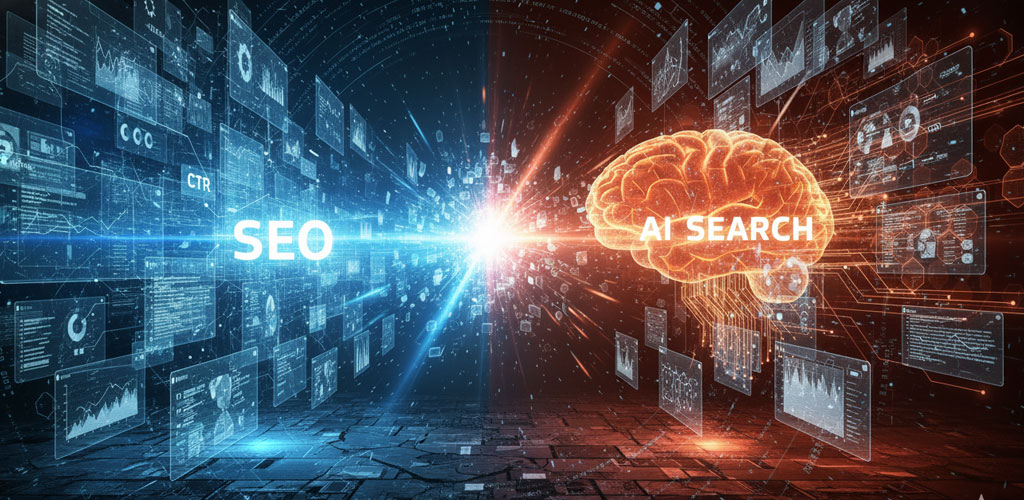In the digital world, search is the heartbeat of the internet. For years, Search Engine Optimization (SEO) has been the key to helping websites appear on top of Google results. Marketers learned how to use keywords, backlinks, and content strategies to stay visible. But with Artificial Intelligence (AI) now stepping into the world of search, everything we once knew is being rewritten. The rise of AI-driven search tools has left marketers and creators with endless questions — and sometimes sleepless nights — about what the future of SEO really looks like.
Understanding Traditional SEO
Traditional SEO is about understanding how search engines like Google index and rank web pages. It focuses on optimizing content through proper keyword placement, meta descriptions, backlinks, and user experience. The goal has always been to create valuable content that matches what users are searching for. When done right, SEO brings organic traffic, builds authority, and helps brands grow without paying for ads. For years, this method was the foundation of online success.
But now, things are shifting fast. AI tools are not only helping people search differently but also changing how search engines interpret information.
The Rise of AI-Powered Search
AI search tools like ChatGPT, Google’s Gemini, and Microsoft’s Copilot are changing how people find answers online. Instead of clicking through pages of results, users can now ask one question and get a direct, conversational response. This saves time and feels more natural — but it also means users are spending less time on traditional search results. For website owners, this raises an important question: if AI can summarize information instantly, will people still visit their sites?
AI search engines learn from massive amounts of data and user behavior. They understand context, intent, and even tone — which means content written just for keywords no longer works. It’s about meaning and experience now, not just optimization.
Will SEO Still Matter in an AI World?
Yes, in a nutshell, but it’s changing. SEO is not dying; it’s adapting. AI search still needs accurate and high-quality information, which means well-written content remains valuable. However, the way content is created and presented must change. Instead of focusing only on ranking for specific keywords, creators need to focus on relevance, depth, and authority.
AI systems prefer content that answers questions clearly, is well-structured, and reflects expertise. This means human insight, creativity, and storytelling are becoming more important than ever. Search optimization is no longer just about pleasing algorithms — it’s about helping AI understand and trust your content.
The New SEO Strategy: Human + Machine
The future of SEO will rely on collaboration between humans and AI. Writers and marketers must use AI tools for data insights, content ideas, and optimization — but the creativity and emotional intelligence of humans will remain irreplaceable. Successful brands will blend both worlds: human authenticity with AI efficiency.
For example, AI can help identify trending topics or analyze what users are asking online. But only a human can write in a voice that connects emotionally with readers. The smartest strategy is to let AI guide the structure, while humans craft the story.
What the Future Might Look Like
The coming years will bring a complete transformation of search. Traditional blue links on Google might slowly fade as conversational AI becomes the main way people find answers. Websites that focus on providing genuine value, factual accuracy, and user experience will still win — but the metrics for success will change. Instead of measuring clicks, we might soon measure how much our content influences AI responses.
Marketers and business owners should stay flexible and ready to evolve. The shift from SEO to AI-driven discovery isn’t a threat — it’s an opportunity to rethink how we connect with audiences. Those who adapt early will lead the next generation of search visibility.
Conclusion
The debate between SEO and AI search isn’t about who wins; it’s about how they work together. AI is reshaping how people find and consume information, while SEO continues to ensure that the right content is available and accessible. The future belongs to those who understand both worlds — those who can combine human creativity with AI intelligence to build meaningful digital experiences.
As we step into this new era of search, one thing is clear: it’s not about fighting change — it’s about mastering it.

